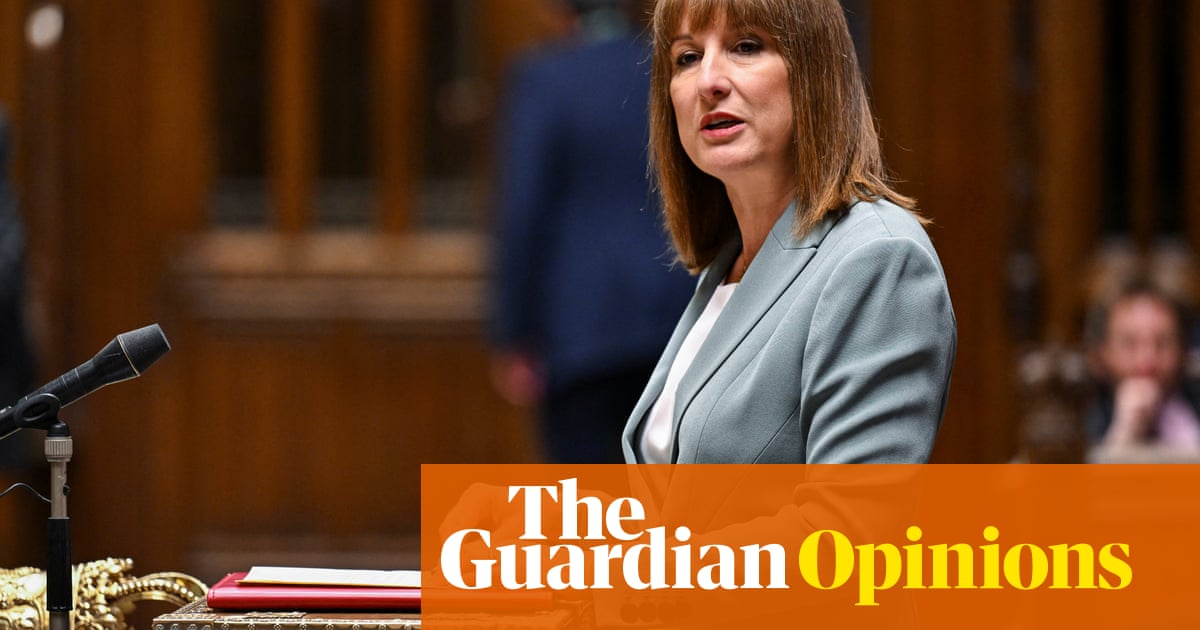The mandate we received from the British people could not have been clearer. First, we had to stop the chaos and return Britain to economic stability. Second, we had to turn the page on Tory decline with clearLabourchoices. Third, we were instructed to rebuild our country.
Wednesday’s spending review turbocharged that rebuilding. It is an investment in Britain’s renewal, so working people have more money in their pocket, more pride in their community and more hope for their children’s future. It’s what people voted for. An NHS cutting waiting lists, with care closer to the community. Wealth and opportunity no longer hoarded by only a few towns and cities.
That means carbon capture projects in Merseyside, Scotland and along the east coast. It means nuclear fusion in Nottinghamshire. Rail investment in Wales. New metro schemes, everywhere from the north-east to the West Midlands, Manchester, South and West Yorkshire. Labour’s message is clear. Every community is now viewed as a source of dynamism and growth. National renewal is for everyone.
Don’t mistake us – it must still be built on firm foundations. The first job of this government was to stabilise the British economy. We did need to stop the chaos. We did need to repair our public finances. And we did need to turn the page with a budget of tough but fair Labour choices. Nobody wants taxes to go up. But politics is about choices. So when we asked private schools, second homeowners and non-doms to contribute more, we chose a fairer way.
Take our announcement last week to extend free school meals to every child on universal credit. One hundred thousand children will be lifted out of poverty as a result – £500 back in the pockets of hard-pressed parents. And more than that, the time. The comfort that knowing the only hunger your kid will experience that day is the hunger for learning. That is the difference we were elected to make. But it’s only possible because we took tough decisions nine months ago.
It’s the same for every success in my Plan for Change so far. Every breakfast club opened, every pothole filled, every extra hospital appointment, rests on those foundations. Change and stability are not in tension. They must advance together.
Look at our opponents. Once again, they believe in the alchemy that says taxes can come down and spending can go up. It’s fool’s gold – precisely the sort of fiscal fantasy that dragged Britain into the mire of decline in the first place. We were crystal clear at the election – we would never put working people through that again. And we would never recklessly forfeit the opportunity to renew their communities with investment.
The spending review shows why, and it starts with security. Security in your family finances, security at work, security at our borders and the defence of our country – this government is investing to keep you safe. We are protecting jobs when they are on the line, as we did with British Steel. We are creating new opportunities by investing in homegrown clean energy and life sciences where Britain has a competitive edge. We are pushing forward with the biggest sustained increase in defence spending since the cold war, unleashing a “defence dividend” that will fire up our industrial communities. The NHS, too, will receive record levels of investment. The best scanners, equipment and technology will be placed in the hands of our brilliant NHS staff. And we will step up to tackle the great social justice cause of our time, with a £39bn investment in affordable housing.
This last one is deeply personal for me. Shamefully, after years of Tory failure to build, more than 80% of Britons now believe owning your own home is “unaffordable for most people”. This is a national emergency – home ownership should not be a distant dream. If we don’t build more homes, homelessness rises, more children are forced to grow up in temporary accommodation, and millions of ordinary families are denied the security they deserve. It would be a disaster for working-class aspiration and I am determined to change it.
I know what it’s like to struggle to make ends meet. Growing up, my family’s phone was regularly cut off, because that was the easiest bill to skip when money ran out. But because we owned our house, we always had that bedrock of security we could build a future around. A base camp for aspiration.
Young working-class people today deserve that same opportunity. It’s basic Labour fairness. Whether you are a young family trying to buy your first home, an apprentice looking for construction jobs in your community, or a nurse working harder and harder with outdated technology at your hospital, Britain should give you a fair crack of the whip.
That’s what this spending review delivers. It spreads opportunity more fairly across the country. It backs the potential of working people in every community. And with wages rising strongly, it gives a further boost to an economy that is beginning to turn a corner. A nation returned to growth, defiantly open for business, determined to deliver security and renewal for its people.
I know there is so much more to do. But this week we entered a new stage in the mission of national renewal. Last autumn, we fixed the foundations. Today, we showed Britain we will rebuild.
Keir Starmer is the prime minister of the United Kingdom
Do you have an opinion on the issues raised in this article? If you would like to submit a response of up to 300 words by email to be considered for publication in ourletterssection, pleaseclick here.
